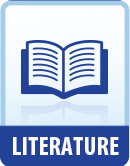|
This section contains 3,717 words (approx. 10 pages at 400 words per page) |

|
In the following essay excerpt, Lock compares the singing of the thrush in "The Darkling Thrush" with Hardy's role as poet and his view of poetry.
Keats's thrush, who is the speaker of the sonnet 'O thou whose face hath felt the winter's wind' which is addressed to one saddened by the landscape of winter, exhorts the poet:
Oh, fret not after knowledgeI have none,
And yet the evening listens.
The joy of Hardy's thrush, however, is not owed to the absence of knowledge but to the knowledge of 'some blessed Hope'. That is a small, buried irony which is insufficient to explain Hardy's choice of bird. For an adequate explanation we must turn to another poet, and to natural history and ornithology. In his Hardy of Wessex of 1940, Carl J. Weber pointed out the remarkable similarities between Hardy's poem and the account of the missel-thrush...
|
This section contains 3,717 words (approx. 10 pages at 400 words per page) |

|




